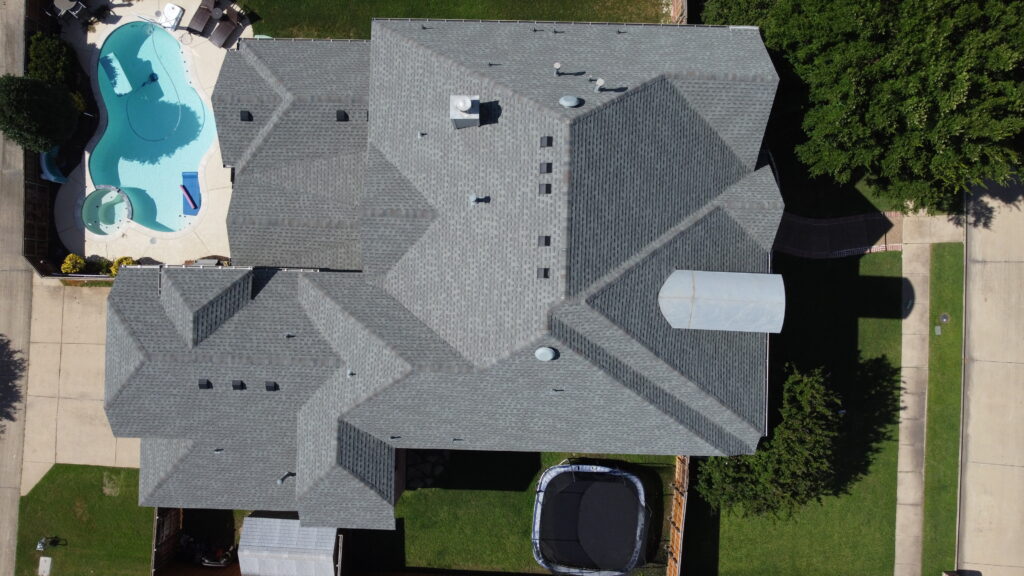Roof maintenance misconceptions often lead to costly repairs, reduced longevity, and unexpected damage. In Denver, where fluctuating weather patterns can take a toll on roofing systems, it’s essential to know what’s true and what’s not when it comes to protecting your home. Below, we expose the most common myths about roofing in Denver and provide reliable guidance to ensure your roof stays in peak condition year-round.
Myth #1: No Visible Damage Means the Roof Is Fine
A roof that looks fine may be silently failing. Beneath the surface, moisture may be penetrating under shingles, flashing could be loosening, or decking might be deteriorating. Especially in Denver’s freeze-thaw cycles, undetected issues can quickly escalate. Routine inspections—ideally twice a year—are vital to assess hidden weaknesses.
Professional Denver roofers use tools and techniques that uncover problems homeowners can’t see from the ground. Minor damage today can turn into major roof repairs tomorrow if left unchecked.
Myth #2: All Roofing Materials Offer the Same Protection
Different materials behave uniquely under Denver’s climate stressors. Asphalt shingles, while cost-effective, may become brittle in cold temperatures. Clay tiles can crack from ice buildup. Metal roofing, though durable, can expand and contract, loosening fasteners over time.
Choosing the right material involves considering local weather patterns, building codes, and your home’s structure. The best roofing companies in Denver Colorado provide material consultations that align with long-term performance, aesthetics, and budget.
Myth #3: Roof Repairs Can Wait Until There’s a Leak
Waiting for visible leaks before addressing your roof is one of the most damaging misconceptions. By the time a leak is noticeable inside your home, insulation could already be saturated, wood framing compromised, and mold thriving.
Proactive roof maintenance, especially after Denver’s spring hailstorms or heavy snowfall, prevents costly structural damage. Immediate attention to curling shingles, discolored ceilings, or granule loss extends your roof’s lifespan and safeguards your investment.
Myth #4: DIY Roof Maintenance Is Safe and Cost-Effective
Climbing a roof without the right safety gear and training can result in serious injury. Beyond the risk, improper repair techniques may void warranties or worsen the existing issue.
Roofing in Denver presents unique challenges—altitude, seasonal weather extremes, and slope grades all affect safety and performance. Trusted roof contractors in Denver adhere to local codes, use appropriate materials, and guarantee their workmanship, making their services far more economical in the long run.
Myth #5: A New Roof Doesn’t Need Maintenance
Even newly installed roofs can experience damage from environmental exposure. Debris accumulation, flashing shifts, and poor ventilation can lead to premature aging, even in newly installed systems.
To preserve a roof’s longevity, schedule seasonal checkups—especially before winter and after storms. This applies whether you’ve installed composite shingles, metal, or slate roofing. Regular maintenance from Denver roofing contractors ensures your warranty remains valid and your roof stays strong.
Myth #6: Roof Repairs Can’t Be Performed in Winter
Despite popular belief, experienced roofers in Denver perform successful repairs during cold months. While certain materials may need warm conditions to seal properly, modern roofing technology and winterized techniques make year-round repairs safe and effective.
Waiting until spring may allow small cracks or ice dams to escalate into serious problems. Reliable roofing companies in Denver adapt their methods for every season, ensuring timely intervention when your home needs it most.
Myth #7: Moss and Algae Are Harmless
Moss and algae thrive in shaded or damp areas and may seem like only cosmetic issues. In reality, moss retains moisture that can cause shingles to deteriorate, while algae can stain and erode roofing materials.
Effective roof repairs in Denver involve not just removal but prevention—installing zinc strips, improving attic ventilation, and applying algae-resistant shingles. Left unchecked, organic growth can compromise structural integrity over time.
Myth #8: Gutters Aren’t Part of the Roofing System
Your gutter system plays a crucial role in roof performance. Clogged or damaged gutters lead to water pooling, ice damming, and eventual roof leaks. Denver’s winter storms make this especially problematic.
Integrating gutter cleaning into your roof maintenance in Denver Colorado routine ensures rain and snowmelt are efficiently diverted away from your home’s foundation and siding.
Myth #9: Roofing Warranties Provide Complete Protection
Warranties often come with limitations and exclusions that aren’t immediately obvious. Most cover manufacturer defects—not poor installation, neglect, or storm damage. Some require routine inspections or specific contractors to remain valid.
When hiring a roofing company in Denver CO, always review the warranty in detail and ask what’s covered. Documentation of inspections and repairs by licensed Denver roofing contractors can prove invaluable during claims.
Myth #10: The Cheapest Roofer is the Best Deal
Tempting though it may be to choose the lowest bid, cheap work often results in shortcuts, subpar materials, or unlicensed labor. This is especially risky in Denver, where seasonal extremes require superior roofing standards.
Reputable roofing contractors in Denver offer transparent pricing, warranties, and certifications. One such reliable provider is Tried and True Roofing, known for exceptional service and craftsmanship in the Denver, Colorado region.
CONCLUSION
Homeowners who rely on roofing myths put their property, safety, and finances at risk. With accurate information and professional help, maintaining a roof becomes a manageable, cost-effective task. Whether it’s seasonal inspection, emergency repairs, or complete replacement, trust only licensed and experienced roofers in Denver. Avoiding these myths ensures your roof stands strong against Denver’s unpredictable weather for years to come.


